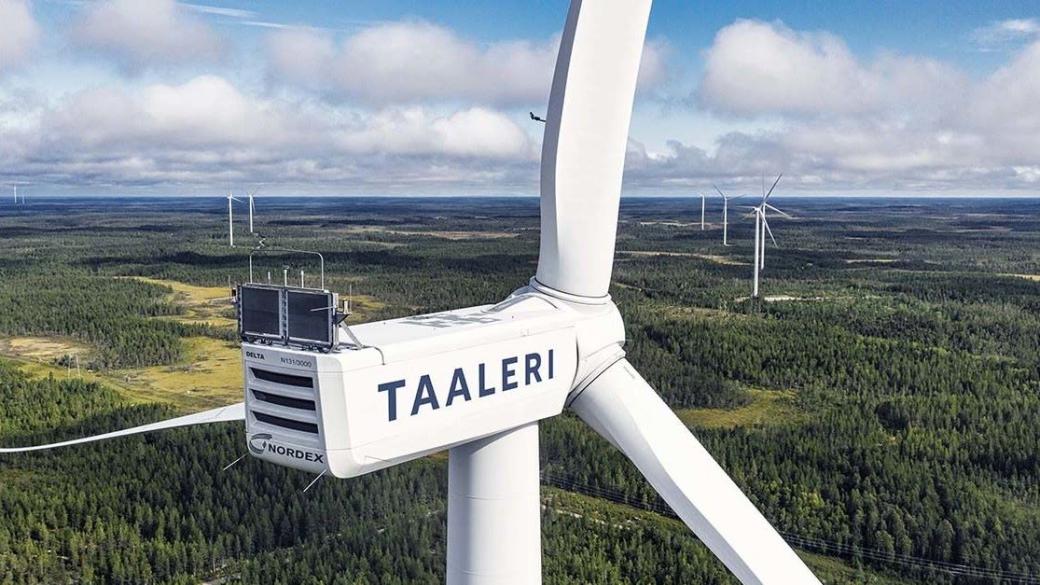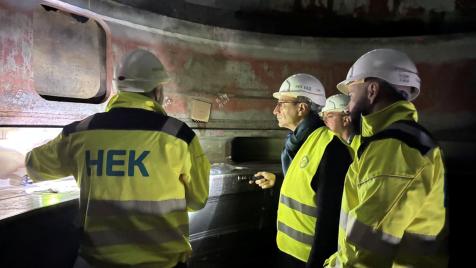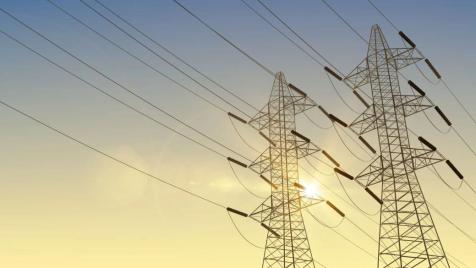Finnish company Taaleri advances with wind farm near Shabla
The project received a positive EIA assessment

© ECONOMIC.BG / Taaleri Energia
Nimex-2004, owned by the Finnish company Taaleri Energia, received a positive opinion on the Environmental Impact Assessment (EIA) for the construction of seven wind turbines near Shabla. The document was issued on January 28 by the Regional Inspectorate for Environment and Water - Varna (RIEW-Varna) following a positive decision by its Environmental Expert Council on January 23.
About the wind farm
The wind turbines will be located on lands belonging to the villages of Gorichane and Prolez. They are part of a planned investment of 120 million euros, announced in the summer of 2023 by the Finnish fund.
The wind farm will be a complex of 7 wind generators, transformers, underground cables, roads and technological platforms. Their technical characteristics include a tower height of up to 125 m, a rotor diameter of up to 163 m, and power of up to 8 MW. These will also be the first new-generation turbines in Bulgaria.
The documents in the Regional Inspectorate for Environment, Water and Forestry indicate that a minimum of 50 million euros will be invested in the construction of the wind farm, and local construction companies will be hired for its implementation. 100 jobs will be created during construction and 30 permanent jobs will remain afterwards.
Since 2011, Nimex-2024 has had a contract with the Bulgarian Electricity System Operator (ESO) for the connection of 80 MW of capacity in the region.
The wind farm project began in 2009 with plans to build 20 turbines. However, in the latest investment proposal, these were changed to seven, for which a positive assessment is now being issued. The delay of the investment proposal by that many years is due to two appeals of previous positive EIA decisions.
Early last year, it was announced that the European Bank for Reconstruction and Development (EBRD) would provide €100 million to the Finnish Taaleri SolarWind III Fund. The funds will support the creation of 800 MW of new renewable energy capacity in the countries where the EBRD is investing. In Southeastern Europe targeted by the Fund are Bulgaria, Croatia, Greece, Montenegro, Romania, Serbia and Slovenia.
The benefits
The RIEW-Varna documents state that the project will bring benefits to the municipality and the local residents, who are, however, opposed to its creation.
As part of the investment, an optical fiber connection will be built to provide internet to several settlements in the area that currently lack this service.
I am very pleased that we are moving forward with the project, which will significantly improve the well-being of the local community. We have already invested in the water supply of the village of Prolez. We have committed to providing internet connectivity to the villages and to completely renovating the Shabla-Gorichane-Prolez road," commented Ken Lefkowitz, an authorized representative of the company, quoted by BTA.
After the implementation of the investment proposal, the Shabla municipality will receive annual revenues in the amount of 1% of the net profit from the electricity generated, but not less than 50 thousand euros.
Bulgaria's Integrated Energy and Climate Plan sets a short-term goal of almost tripling installed onshore wind capacity – from 0.71 MW in 2025 to 1.99 GW by 2030. The seven planned wind turbines will contribute over 4% of the planned growth in installed capacity.
Locals are against it
A protest was held in the town of Shabla on Thursday against the construction of wind farms on the territory of the municipality. Lyuba Zahova, who is a member of the local initiative group against wind farms, says that this is the second stage of the construction of wind energy sources on the territory of the municipality, and this concerns agricultural land in the area of the villages of Gorichane and Prolez.
There will be seven new (towers), huge blades, up to 300 meters high, with a reinforced concrete foundation with a depth and width of 30 by 30 meters," commented Zahova, quoted by BTA. According to her, wind blades "are becoming increasingly dangerous for humans and nature, as their capacities have been increased."
She announced that a petition had also been submitted to the National Assembly, requesting a moratorium to prohibit the construction of wind farms on fertile land.
Translated by Tzvetozar Vincent Iolov

 Aleksandra Sotirova-Delcheva
Aleksandra Sotirova-Delcheva 


